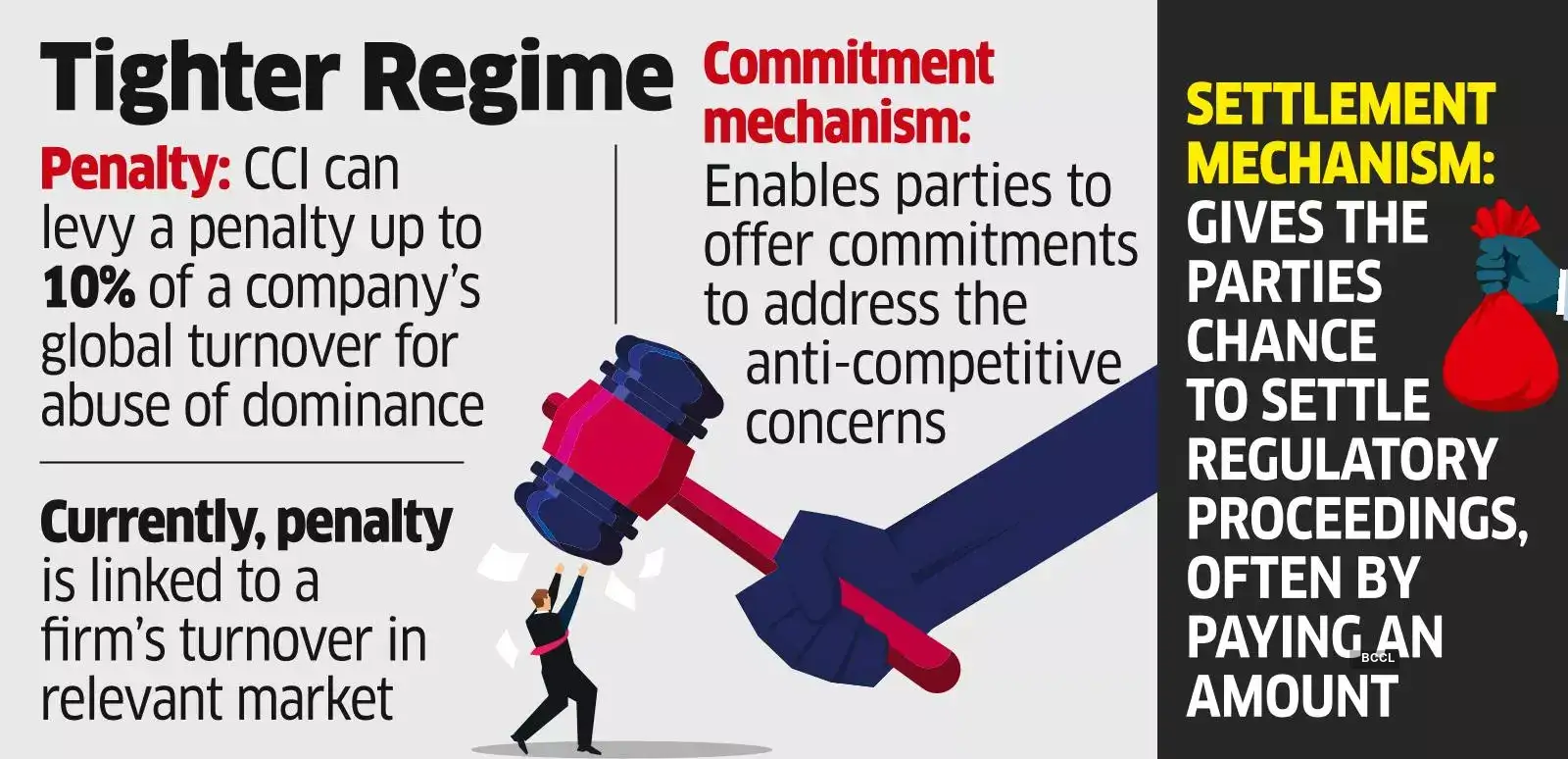The move will boost the regulator’s chances of curbing such antitrust activities involving multinational firms, including Big Tech, as experts said the penalty amount would be significantly higher because it would no longer be pegged only to the firm’s turnover in a relevant market.
The CCI regulations followed a notification issued by the ministry of corporate affairs stipulating March 6 as the date for implementing the relevant provisions of the Competition (Amendment) Act 2023 that deal with the new monetary penalty regime.
Under the new provision, the CCI can levy a penalty up to 10% of a company’s global turnover for the abuse of dominant position as per Section 27 of the amended law.
Neelambera Sandeepan, partner at Lakshmikumaran & Sridharan Attorneys, said: “The penalty guidelines will provide more certainty and predictability to enterprises under investigation on the likely quantum of penalty they can face”.
The regulations “balance the aggravating and mitigating circumstances to determine penalties,” Sandeepan said. “It is promising to see that the CCI will also take into account the existence of a competition compliance programme as a factor while making the penalty determination,” she added.

Commitment, settlement mechanisms notified
In separate notifications, the CCI has also unveiled regulations governing the so-called commitment and settlement mechanisms. These will enable companies charged with anti-competitive conduct, including global tech firms, to approach the regulator to resolve the matter expeditiously, experts have said.
The commitment mechanism typically requires the applicant to propose commitments to address the anti-competitive concerns of the regulator. A company will have the option to file a commitment application with the regulator within 45 days of its receipt of a prima facie inquiry order by the CCI. Similarly, an application for the settlement of regulatory proceedings initiated for alleged contraventions of fair trade rules has to be filed by a company within 45 days of its receipt of the CCI director general’s probe report, while another 30 days can be granted by the regulator, subject to conditions. The CCI retains the power to reject any such applications as well. The inquiry against the relevant companies in both the commitment and settlement cases will be kept in abeyance until the regulator takes a final decision on their applications, subject to a time frame.









